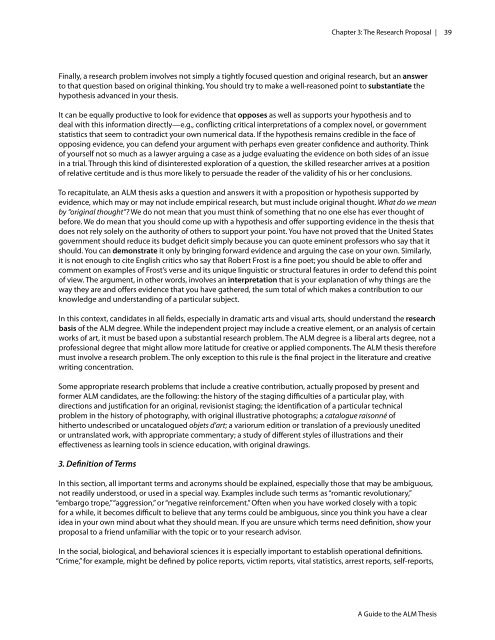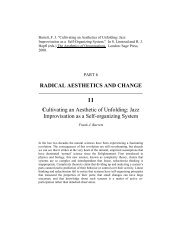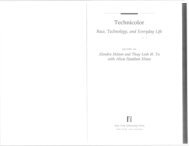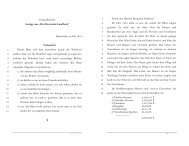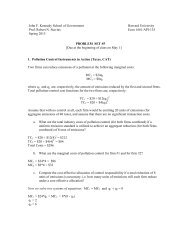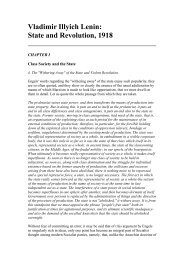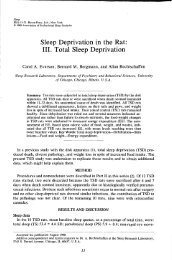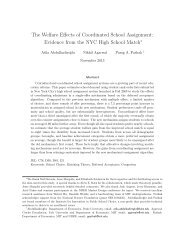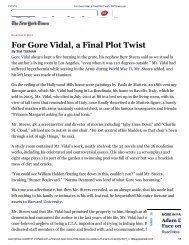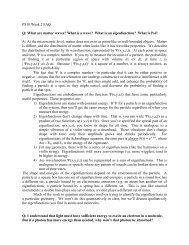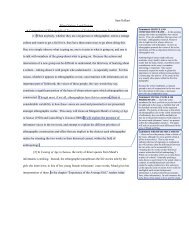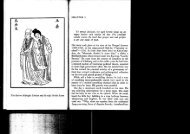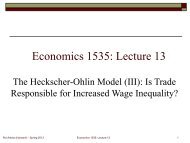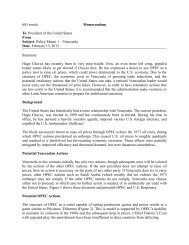A Guide to the ALM Thesis - iSites - Harvard University
A Guide to the ALM Thesis - iSites - Harvard University
A Guide to the ALM Thesis - iSites - Harvard University
You also want an ePaper? Increase the reach of your titles
YUMPU automatically turns print PDFs into web optimized ePapers that Google loves.
Chapter 3: The Research Proposal | 39<br />
Finally, a research problem involves not simply a tightly focused question and original research, but an answer<br />
<strong>to</strong> that question based on original thinking. You should try <strong>to</strong> make a well-reasoned point <strong>to</strong> substantiate <strong>the</strong><br />
hypo<strong>the</strong>sis advanced in your <strong>the</strong>sis.<br />
It can be equally productive <strong>to</strong> look for evidence that opposes as well as supports your hypo<strong>the</strong>sis and <strong>to</strong><br />
deal with this information directly—e.g., conflicting critical interpretations of a complex novel, or government<br />
statistics that seem <strong>to</strong> contradict your own numerical data. If <strong>the</strong> hypo<strong>the</strong>sis remains credible in <strong>the</strong> face of<br />
opposing evidence, you can defend your argument with perhaps even greater confidence and authority. Think<br />
of yourself not so much as a lawyer arguing a case as a judge evaluating <strong>the</strong> evidence on both sides of an issue<br />
in a trial. Through this kind of disinterested exploration of a question, <strong>the</strong> skilled researcher arrives at a position<br />
of relative certitude and is thus more likely <strong>to</strong> persuade <strong>the</strong> reader of <strong>the</strong> validity of his or her conclusions.<br />
To recapitulate, an <strong>ALM</strong> <strong>the</strong>sis asks a question and answers it with a proposition or hypo<strong>the</strong>sis supported by<br />
evidence, which may or may not include empirical research, but must include original thought. What do we mean<br />
by “original thought”? We do not mean that you must think of something that no one else has ever thought of<br />
before. We do mean that you should come up with a hypo<strong>the</strong>sis and offer supporting evidence in <strong>the</strong> <strong>the</strong>sis that<br />
does not rely solely on <strong>the</strong> authority of o<strong>the</strong>rs <strong>to</strong> support your point. You have not proved that <strong>the</strong> United States<br />
government should reduce its budget deficit simply because you can quote eminent professors who say that it<br />
should. You can demonstrate it only by bringing forward evidence and arguing <strong>the</strong> case on your own. Similarly,<br />
it is not enough <strong>to</strong> cite English critics who say that Robert Frost is a fine poet; you should be able <strong>to</strong> offer and<br />
comment on examples of Frost’s verse and its unique linguistic or structural features in order <strong>to</strong> defend this point<br />
of view. The argument, in o<strong>the</strong>r words, involves an interpretation that is your explanation of why things are <strong>the</strong><br />
way <strong>the</strong>y are and offers evidence that you have ga<strong>the</strong>red, <strong>the</strong> sum <strong>to</strong>tal of which makes a contribution <strong>to</strong> our<br />
knowledge and understanding of a particular subject.<br />
In this context, candidates in all fields, especially in dramatic arts and visual arts, should understand <strong>the</strong> research<br />
basis of <strong>the</strong> <strong>ALM</strong> degree. While <strong>the</strong> independent project may include a creative element, or an analysis of certain<br />
works of art, it must be based upon a substantial research problem. The <strong>ALM</strong> degree is a liberal arts degree, not a<br />
professional degree that might allow more latitude for creative or applied components. The <strong>ALM</strong> <strong>the</strong>sis <strong>the</strong>refore<br />
must involve a research problem. The only exception <strong>to</strong> this rule is <strong>the</strong> final project in <strong>the</strong> literature and creative<br />
writing concentration.<br />
Some appropriate research problems that include a creative contribution, actually proposed by present and<br />
former <strong>ALM</strong> candidates, are <strong>the</strong> following: <strong>the</strong> his<strong>to</strong>ry of <strong>the</strong> staging difficulties of a particular play, with<br />
directions and justification for an original, revisionist staging; <strong>the</strong> identification of a particular technical<br />
problem in <strong>the</strong> his<strong>to</strong>ry of pho<strong>to</strong>graphy, with original illustrative pho<strong>to</strong>graphs; a catalogue raisonné of<br />
hi<strong>the</strong>r<strong>to</strong> undescribed or uncatalogued objets d’art; a variorum edition or translation of a previously unedited<br />
or untranslated work, with appropriate commentary; a study of different styles of illustrations and <strong>the</strong>ir<br />
effectiveness as learning <strong>to</strong>ols in science education, with original drawings.<br />
3. Definition of Terms<br />
In this section, all important terms and acronyms should be explained, especially those that may be ambiguous,<br />
not readily unders<strong>to</strong>od, or used in a special way. Examples include such terms as “romantic revolutionary,”<br />
“embargo trope,” “aggression,” or “negative reinforcement.” Often when you have worked closely with a <strong>to</strong>pic<br />
for a while, it becomes difficult <strong>to</strong> believe that any terms could be ambiguous, since you think you have a clear<br />
idea in your own mind about what <strong>the</strong>y should mean. If you are unsure which terms need definition, show your<br />
proposal <strong>to</strong> a friend unfamiliar with <strong>the</strong> <strong>to</strong>pic or <strong>to</strong> your research advisor.<br />
In <strong>the</strong> social, biological, and behavioral sciences it is especially important <strong>to</strong> establish operational definitions.<br />
“Crime,” for example, might be defined by police reports, victim reports, vital statistics, arrest reports, self-reports,<br />
A <strong>Guide</strong> <strong>to</strong> <strong>the</strong> <strong>ALM</strong> <strong>Thesis</strong>


